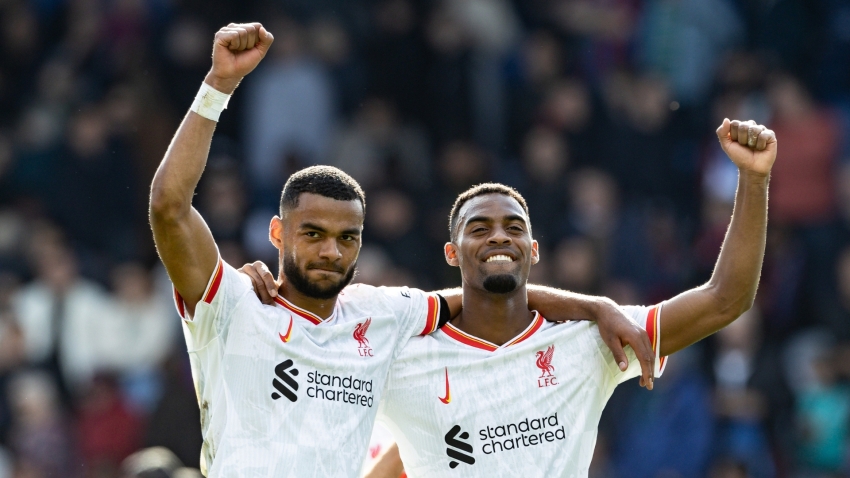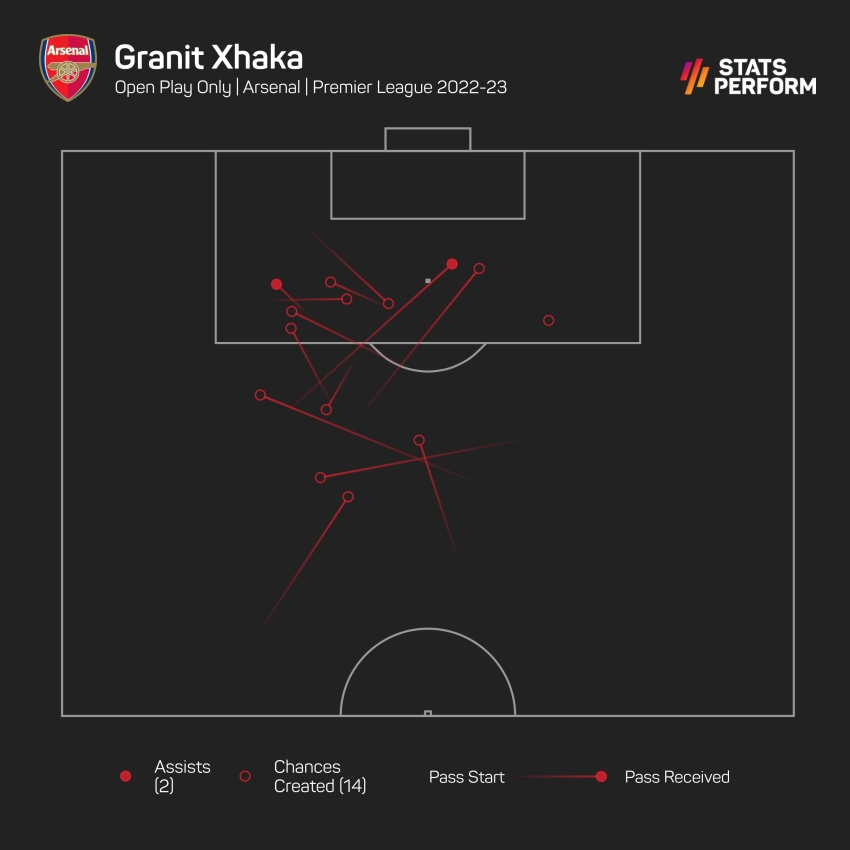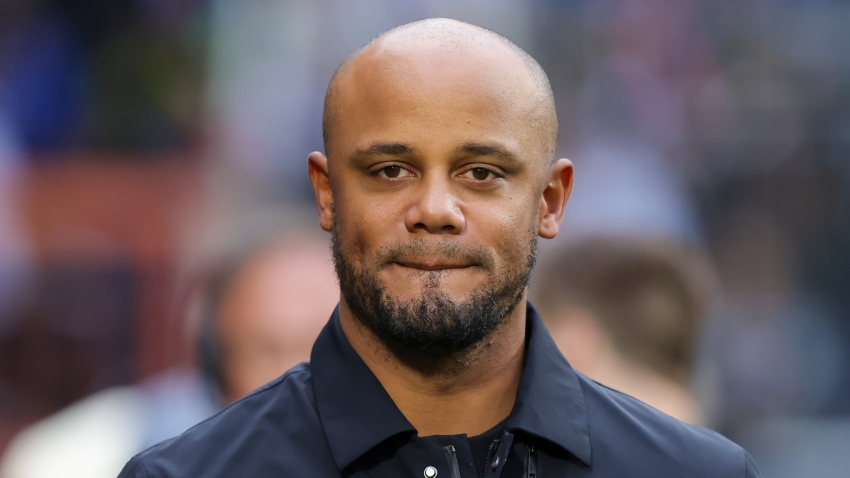Football loves a redemption story, and it's fair to say Granit Xhaka is living one right now.
You don't have to cast your mind back too far to recall a time when the Switzerland international was practically persona non grata at Arsenal – in the fans' eyes, anyway.
Red cards, becoming a scapegoat, falling out with the supporters in the most public way imaginable: Xhaka's Arsenal career has rarely been straightforward.
And yet, as Mikel Arteta's Gunners prepare to make something of a title statement against Liverpool on Sunday, Xhaka knows his will be one of the first names on the team, and deservedly so.
It serves to highlight his unlikely return from the brink.
The problems
Xhaka arrived at Arsenal with a reputation as a clever but combative midfielder who was more than happy to get stuck in. After all, his five red cards in from the start of the 2013-14 season until the end of 2015-16 was the most of any Bundesliga player over that period, and only two players were booked more often (29).
There was an acceptance his style of play would be a risk, though many Gunners fans were adamant such forcefulness was missing from their midfield.
While Xhaka did show many qualities during his debut season, it was his disciplinary record and aggressive style that unsurprisingly defined him in the eyes of many, as he was shown three red cards across all competitions in the 2016-17 campaign.
He did then go three successive seasons without a red card, attributing his initial improvement in that area to Arsene Wenger back in November 2017, with video analysis seemingly crucial to the midfielder's learning. Though it should be said, he amassed 10 yellows in each of those three league campaigns, so it wasn't as if he suddenly became an angel.
The thing is, Xhaka's wild side may have been embraced or at least more readily forgiven were it not for his other on-pitch woes. Between August 2016 and September 2020, his 16 Opta-defined errors leading to shots were five more than any other Arsenal player across all competitions, while only Petr Cech and Bernd Leno (both seven) – goalkeepers, so you'd expect them to be punished more – committed a greater number of errors that led to goals (six).
Similarly, Xhaka's five penalty concessions over the same period was a joint-high at Arsenal with David Luiz. Essentially, there was a common perception emerging that he was liability even if he wasn't getting sent off.
The downfall
It was the last 12 months of the aforementioned four-year period when Xhaka's Arsenal days appeared numbered. In October 2019, exactly a month after being made captain, Xhaka was substituted during Crystal Palace's visit to the Emirates Stadium and a chorus of boos was aimed in his direction.
Xhaka made sarcastic gestures to the crowd in response, cupped his ear and then appeared to swear at the Arsenal fans as he was replaced by Bukayo Saka. He swiftly removed his jersey on his way down the tunnel.
Former Arsenal players and fans alike called for him to lose the captaincy after head coach Unai Emery suggested Xhaka shouldn't have reacted as he did.
On November 5, Arsenal confirmed Xhaka had been stripped of the armband and he didn't play again until the end of the month when the Gunners faced Eintracht Frankfurt in the Europa League – he had missed five games in all.
In the intervening period, Xhaka provided an explanation for his actions, detailing how months of abuse at matches and on social media had seen him reach "boiling point". He professed his love for the club and encouraged everyone to "move forward positively together".
Remarkably, that's what happened.
The redemption
It bears remembering, the atmosphere around Arsenal was toxic enough even without the Xhaka situation – December saw Emery replaced by Arteta, and the latter was unequivocal in his desire to keep Xhaka at the club.
A move to Hertha Berlin had been agreed, according to the player's agent, and that appeared to be the end. But, with the January 2020 transfer window only a day old, Arteta revealed Xhaka had assured him he was staying.
Six months later, Xhaka emphasised the importance of Arteta in that decision. He told BT Sport: "I was very, very close to leaving the club. I had, until this [Palace incident], had a great, great time in this football club. It was never in my mind to leave the club before, but after this happened, of course you think about it.
"When Mikel arrived, I had a very good meeting with him, very good conversations. Mikel was the guy. He turned me around and gave me a second chance, and he showed me he trusted me and I have tried to give him everything back."
Since then, he's steadily won back the faith of Arsenal fans and is arguably enjoying the finest spell of his Arsenal career. This season, he's already got two goals and three assists in eight Premier League games – only in 2018-19 (four) has he scored more goals in a single campaign for the Gunners, while only in 2017-18 has he provided more assists (seven).
So, to anyone wondering what's changed, the answer is fairly clear: Xhaka's playing a more advanced role and this is allowing his strengths – distribution, shooting – to shine. For much of his Arsenal career, he's been used as the deepest midfielder, but that's no longer the case with Thomas Partey the first choice in that role.
With more freedom to get forward, Xhaka's creating 2.2 chances from open play every 90 minutes (all comps.) – his previous best in that regard for Arsenal or Borussia Monchengladbach was 1.2. Granted, those were over full seasons, but that shouldn't detract from an obvious greater creative influence.
While he is making fewer tackles and interceptions than ever before, the fact only four midfielders have more than his five Premier League goal involvements this term suggests it's not a problematic sacrifice.
The Granit Xhaka most have known throughout his Premier League career was associated with work rate and destructive tendencies, but his current guise suggests he's not only enjoyed a redemption but a rebirth.
































